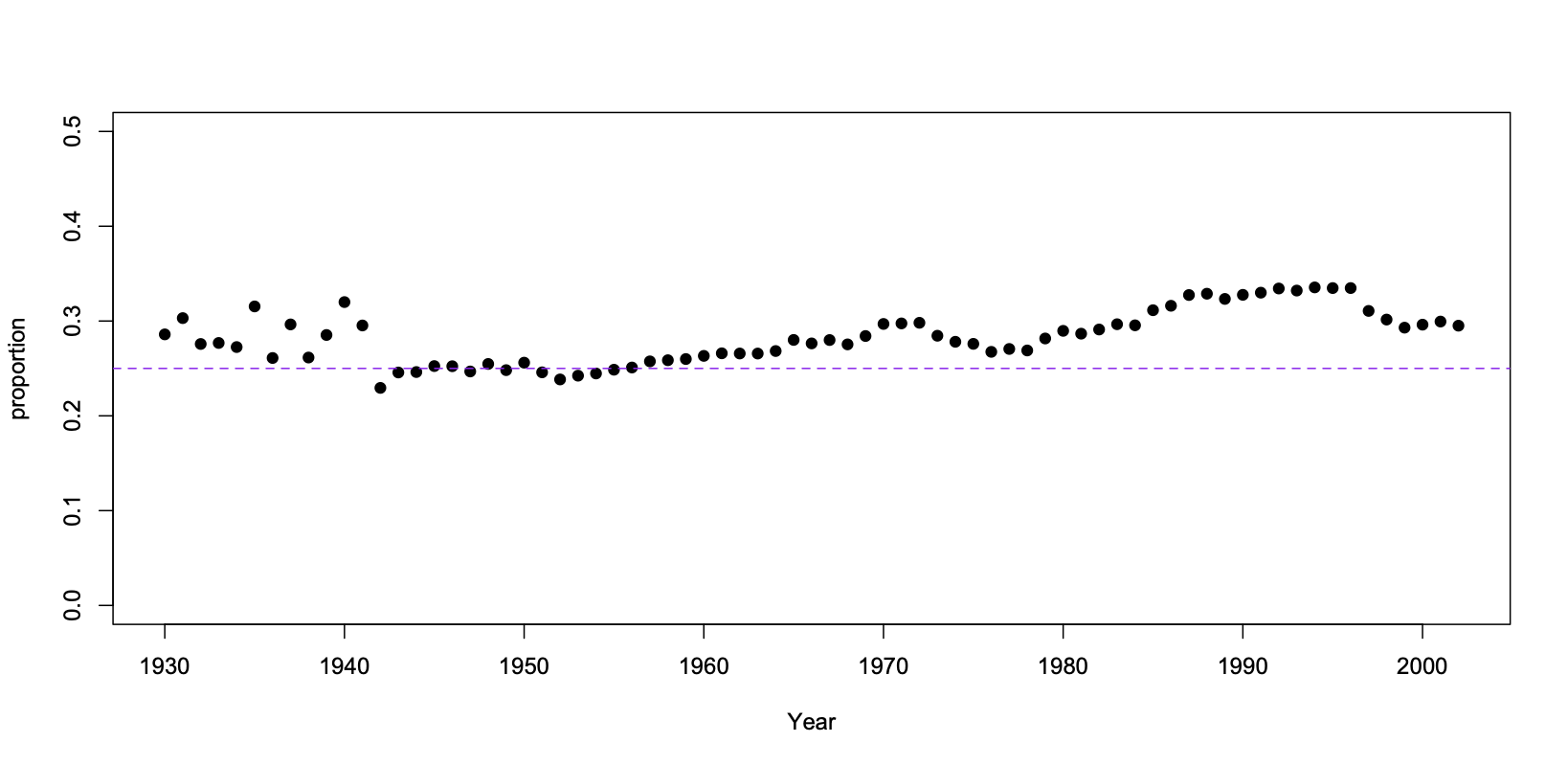Mind if we call you ‘Bruce’?
From news.com.au (via @LewSOS and @Economissive on Twitter) “The names of Australians most likely to win the lotto have been revealed, with the top three taking home more than a quarter of the prizes last year.”
What they actually have for ‘names’ is first initials. Apparently, more than a quarter of first-division prizes last year were won by people whose names started with “J”, “A”, or “D”. Of course, people whose names start with these letters are not any more likely to win lotto if they buy tickets. Either more people in this category bought tickets than average (in which case it would be truer to say they are more likely to lose Lotto), or the distribution of initials is pretty much the same as for the country as a whole.
The story does go on to say that name and age can’t affect your chance of winning, but not to explain why, given that, it’s news.
Anyway, since Rob Hyndman and the stats group at Monash have put together a database of frequencies of Australian names, we can see how representative the winners are. Here are the proportion of Oz babies born each year (up to current 18-year-olds) whose names begin with “J”, “A”, or “D”. As you can see, it’s “more than a quarter” almost every year where we have data.
Since you’re a StatsChat reader, you can probably think of reasons there might be a difference between Lotto name frequencies and baby name frequencies. The baby names don’t include immigrants and do include emigrants. There might be ethnic differences in propensity to play Lotto that happen to be correlated with first initial. There might be quite large chance differences because the lottery folks only looked at first-division winners, a very small (but random) sample of Lotto players. But it doesn’t look like we need to go there.
Thomas Lumley (@tslumley) is Professor of Biostatistics at the University of Auckland. His research interests include semiparametric models, survey sampling, statistical computing, foundations of statistics, and whatever methodological problems his medical collaborators come up with. He also blogs at Biased and Inefficient See all posts by Thomas Lumley »

And babies don’t play lotto.
What I want to say is that baby name frequencies vary over time: https://fivethirtyeight.com/features/how-to-tell-someones-age-when-all-you-know-is-her-name/
(even if this fact counts for less grouping names by initials)
4 years ago
Yes, that’s why I showed the frequency by year of birth, and stopped at people who are now 18.
The proportion starting with the three most popular letters varies a lot less than the proportions with specific names.
4 years ago